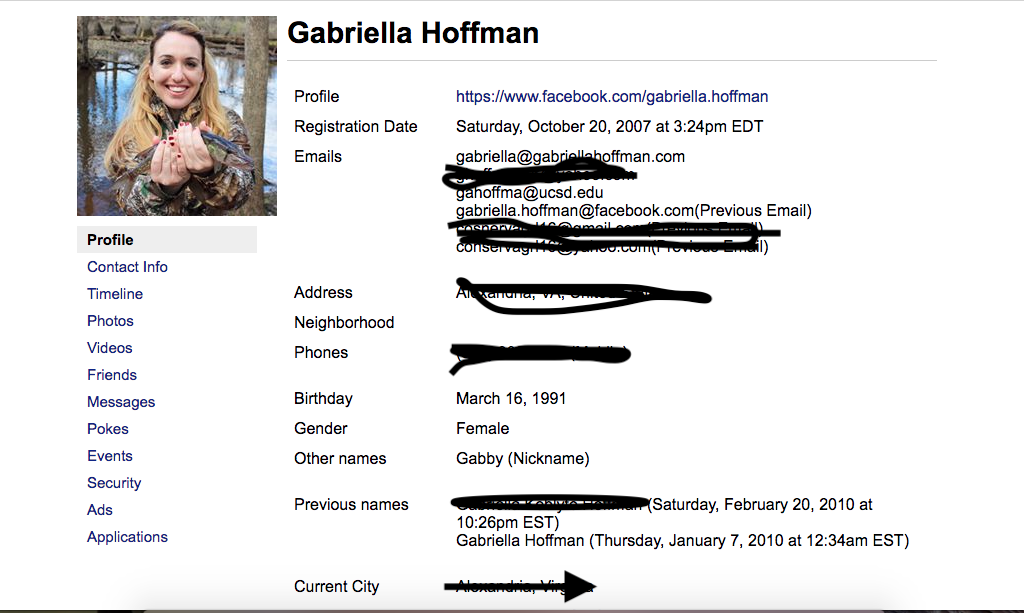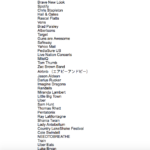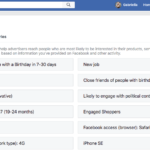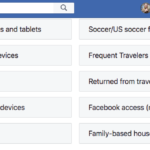The recent kerkuffle over Cambridge Analytica-Facebook has renewed interest in privacy concerns. The Trump-backed data mining firm allegedly collected information on 50 million Facebook users. (Yikes.) Government entities like the NSA routinely engage in spying, and it appears Big Tech companies engage in similar snooping behavior with respect to data from social media usage. That’s not new, sadly.
To simply scapegoat Cambridge Analytica as a bad actor in this Facebook ordeal would be dishonest. My Resurgent colleague Erick Erickson appropriately called this story a “nothing burger”. He debunked the controversy surrounding it below:
Cambridge Analytica got advertising data from Facebook. They were able to micro-target, advertise, and customize for people on Facebook and those people’s friends. They did what other advertisers can do. They did what Facebook let them and what Facebook let Democrats do too. There was nothing illegal. The reality is that with Facebook, Twitter, and other online services, you are the good being sold. You use their services for free, they collect data on you, and then they let third parties target you with advertisements based on the psychographic profile generated by your date.
Mainstream publications have similarly echoed Erick’s article, suggesting both major parties and various entities routinely get our data without consent. The Telegraph published the article “From Obama to Tinder: Cambridge Analytica wasn’t the first and won’t be the last to exploit our data” to show how companies, regardless of political stripes, take data without our consent. Fast Company also highlighted how the Obama campaign in 2012 used a “Targeted Share” app to extract data on millions of unsuspecting users:
In 2012 the Obama campaign was desperate to reach twentysomethings who were hard to access because they had only cell phones. So it sought to reach them on Facebook. Two GOP campaign analytics sources told me the Obama camp used a common Facebook developer API–the same one used to access the data for Cambridge Analytica–to create a Facebook app that could capture the personal data not only of the app user, but also of all that person’s friends. The tactic, which the campaign called “targeted share,” was based on research showing that social friends usually share more than cat pictures–they share political beliefs. So the campaign’s app searched out potential Obama voters within the friend lists of current supporters.
This thread from Carol Davidsen, Obama campaign’s director of integration and media analytics Carol Davidsen, shows how their campaign took advantage of this:
I worked on all of the data integration projects at OFA. This was the only one that felt creepy, even though we played by the rules, and didn’t do anything I felt was ugly, with the data.
— Carol Davidsen (@cld276) March 19, 2018
In wake of these findings, Facebook has now allowed users to see what tabs they have on us. I was largely inspired by this blog post at HubSpot to demonstrate the widespread reach Facebook has on our personal information. However, unlike this HubSpot article, I don’t put the full blame on Cambridge Analytica. Data firms from both major political parties, dating apps, and other programs equally steal our information without our consent. I’m going to show you how to download your record and how to assess the information from your record.
Instructions for Downloading Your Facebook Data:
- Click
 at the top right of any Facebook page and select Settings.
at the top right of any Facebook page and select Settings. - Click Download a copy of your Facebook data below your General Account Settings.
- Click Start My Archive.
It may take a few hours or more to receive your data. Once you do, you have access to it for a few days and then you won’t. There’s a lot you’ll be able to dig through once you download your copy of Facebook data, as it’s too voluminous for me to list here. For example,
Here are my initial findings, in terms of advertisers with my information:
I’ve attended some of the concerts of the country music artists listed, so it makes sense they appear here. However, I haven’t shopped at Albertson’s or Vons since leaving California six plus years ago. I haven’t been to a Hall & Oates concert—odd. PediaSure? I don’t have kids. Bed, Bath, and Beyond? I don’t shop there. Neko Case? I’m not sure what that is. That’s hella creepy these entities have my information…
Here are some Ad Preferences too:
Facebook has determined I fit into these categories: I’m politically very conservative (no shocker there!), lots of my friends are expats (I have a few in Europe), people who watch soccer moderately (I’m more of a tennis gal), frequent travelers, I’m an iPhone SE user (damn—that’s creepy they know), that I belong to a 4G network, and that I’m shopping for engagement related stuff (very OFF-mark here). Some of these categories are on-target, while the rest are off-mark. Still, odd Facebook keeps tabs on this.
The sad reality about opting into social media platforms, in exchange for forgoing paying for usage, we consent to having certain pieces of information surrendered. Is this method at all ethical? To the contrary. Being commodified as a user is downright degrading, but that’s sadly the nature of social media today. You agree to Terms & Services that you are largely unaware of. I don’t like having third party apps having access to my email and other personal data—especially if I didn’t opt-into their mailing list or services. That’s very 1984-esque and creepy.
Perhaps this Cambridge-Analytica example will prompt Big Tech to reconsider how much information they extract from users and shows us the limits of these entities. Should they be subjected to regulation? I don’t think so. Anytime the government involves itself in private enterprise, chaos ensues.
Instead, Big Tech entities need to self-regulate themselves, act politically neutral, and assess how they go about their operations to be self-sustaining for future decades to come.
###
What did you think of this piece? Am I on-target or off-mark?
As always, I recommend you follow me on Facebook, Twitter, Instagram, and YouTube to stay in the loop with my musings. Subscribe to my newsletter–now LIVE. Chime in below with your comments!






Pingback: Cambridge-Analytica is Dead: Here's What Facebook Should Do Going Forward | Gabriella Hoffman